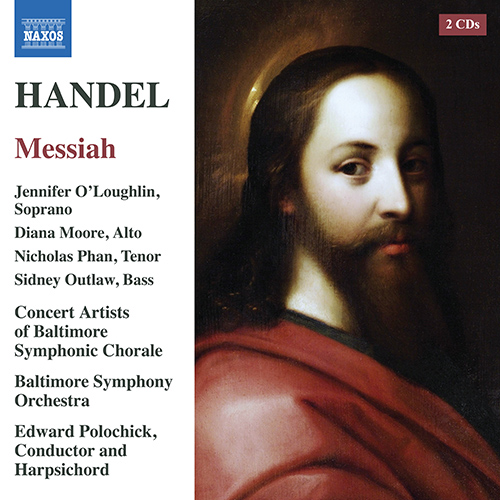Handel's Messiah in Baltimore
- 3 minutes read - 615 wordsEvery Christmas season, a certain piece of music seems to follow me everywhere—from radio jingles to shopping mall speakers. But it wasn’t until a snowy evening in 2012 that Handel’s Messiah truly captured my heart. That December, I decided to take my wife on a date to see the Baltimore Symphony Orchestra’s performance. I had always liked classical music, but nothing prepared me for what I would experience that evening.
When the orchestra pulled their bows across the strings to begin the Overture, I was enchanted. My wife and I followed along with the program, which had all the words written out—straight from the Bible, or slightly paraphrased. I loved how scriptural it was, how every recitative, air, and chorus proclaimed the story of Jesus Christ: Old Testament prophecies, His birth, life, death, resurrection, and ultimate victory.
That first evening, I was especially struck by the unique way the conductor, Edward Polochick, led the performance. In keeping with the traditional G. F. Handel style, he directed the orchestra while playing the harpsichord. It was mesmerizing to watch. I’ll never forget his interpretation of Glory to God in the Highest. Instead of beginning the chorus mezzo-piano (moderately quiet), as is typical, he had the choir sing in a hushed, almost whispered tone. He explained in the program that the angels wouldn’t have shouted at the already-frightened shepherds—and I couldn’t help but laugh. That quiet start made the piece’s crescendo even more powerful.
For several years, we made it a tradition to attend Messiah performances at the symphony. In 2016, we were thrilled to hear that they were recording the evening’s performance for an album. By 2018, when we brought friends along, the finished album was available, and we made sure to grab a signed copy. It’s even on Spotify now!
Here’s something you might not know: Handel composed Messiah in just 24 days. The piece premiered in 1742, not at Christmas, but just before Easter in Dublin, Ireland, as a charity performance to raise money for a debtors’ prison and a hospital. Today, it’s a Christmas staple, but its themes of prophecy, sacrifice, and redemption resonate year-round.
Of all the movements, The Lord Gave the Word and Lift Up Your Heads, O Ye Gates are my favorites. But nothing quite lifts my soul as much as the pronounced entrance of the cellos and basses in the Overture. And while I enjoy All We Like Sheep Have Gone Astray, I’ve always found its cheerful melody a little ironic for such a somber message. Who knows why Handel chose that tone—perhaps to mirror the aimless, thoughtless wandering of sheep?
The advent of Christ’s birth is announced so beautifully in the tranquil Pastoral Symphony. From there, the music builds to the joyous proclamation of Glory to God in the Highest. Later, the oratorio takes listeners through the sorrow of Christ’s passion and death, only to crescendo in triumph with His resurrection and ultimate reign. Every time, it gives me chills.
One of the most stunning movements is The Trumpet Shall Sound, a long solo bass and trumpet duet that brings I Corinthians 15:52 to life: “The trumpet shall sound, and the dead shall be raised incorruptible, and we shall be changed.” It’s a powerful reminder of the hope we have in Christ’s return.
Even in a society that often forgets God’s Word, Messiah proclaims the gospel in public spaces. Through this masterpiece, Christ’s birth is still announced, His resurrection is still preached, and His return is still foretold. If you’ve never experienced Messiah live, make this the year you do. Whether it’s a professional concert or a local sing-a-long, it’s an unforgettable celebration of the greatest story ever told.
